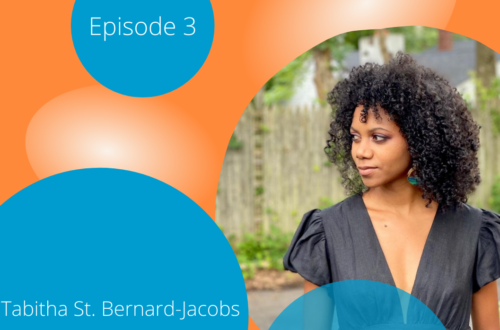
Episode 2: Strength in Unity. Season Of Blackness
This podcast takes you on the journey of the proud Haitian singer Elektra Cassandre Joseph. She started her career 20 years ago with the band called Phantom. Elektra has collaborated with many singers, and now she sings solo.
Elektra’s perspective shows us how the systems based on European philosophy can deprive individuals of forming their own identities.
Elektra understood the true sense of being Haitian after traveling across the globe and researching her roots.
Growing up in Haiti:
The schools in Haiti are modeled after European-based education, which involves the colonizer’s languages, history, and culture. This system did not favor education or celebrated Haiti’s culture and language. Even as a student, Elektra was curious to know more about her country.
Later on in her life, when she moved to the US, she got the opportunity to explore her roots and history. This was a huge revelation for her, as she understood what her ancestors went through and how far they have come. As a result, she got a newfound respect for her country, and this journey gave her a sense of pride.
What does Blackness mean to her?
The education provided in Haiti was not enough for her to understand the discrimination between races. She was trying to figure out why her race is looked down upon. She noticed the discrimination among students in school. The favoritism towards white kids could not be justified in her own eyes. Something did not feel right to her but she did not yet have the words to express what she felt and the understanding of her own history.
After understanding her roots, things became clearer for her. She realized the struggle and the trauma the generations before her experienced. Now, Elektra knows how resilient and strong her community is and that has formed a new meaning of ‘Blackness’ for her.
The bias created by languages:
She learned French in school. However, she did not like that everything was taught in French. There was a similar phenomenon in other colonized countries where the education system imposed the colonizer’s languages on the colonized. As a result, Creole was spoken outside of school in her childhood, and she felt forced to speak in French.
She is grateful to be multilingual, but she wanted to be educated in Creole as well. Unfortunately, Creole did not have much significance since it was spoken only by the local population. Back then, Haiti too aspired to be more European, just like any other colonized people; many Haitians thought being European was the benchmark of growth and development.
Languages increase the disparity between classes. Elektra roughly estimates that only 1% of the Haitian children have the privilege to be taught in French while the rest are not. Consequently, they are labeled as illiterate because their education does not match the European standards.
She mentioned a change in the education system to unify all groups of people living in Haiti. Recently, the schools have added Creole to the curriculum. So now, the future generation can be more connected to Haitian culture.
Significance of Creole music:
One of the former Presidents of Haiti gave the language of Creole the respect it deserves. From his initiative, the citizens could accept Haitian Creole and use it to express themselves freely. That was the rise of Creole music in Haiti. People were able to sing and dance to creole music, giving everyone a chance to enjoy their culture and express themselves without fear of being called uneducated. Previously, in the ’70s and ’80s, only French-speaking singers could shine under the spotlight because Creole was looked down upon. Currently, there is a huge transition that involves diversity and freedom in the music industry.
Her best experience of singing Creole music was in Japan because the audience accepted the language, the music, and the vibe created by Phantom. This gave her hope that Creole music could thrive make its way in an international setting.
She has also spoken about singing in various languages such as Spanish and Xhosa. Elektra believes that she can understand a place or a culture better through the tongue.
Haiti and its roots:
While Elektra was researching the roots, she learned about African music and food. But, what intrigued her the most was the similarities between the music and the techniques to create sound.
She embraced her African roots during her research, and she found her true self.
Elektra’s acceptance of her music, appearance, and roots open up more opportunities for her. She looks up to the leaders and singers of the previous generation to make the evolution happen for Pop-Creole music.
Please check out Episode 2 of In The Pursuit of Journey to self: Blackness.
Follow us on Facebook and Instagram.
Written by Seher Arif




